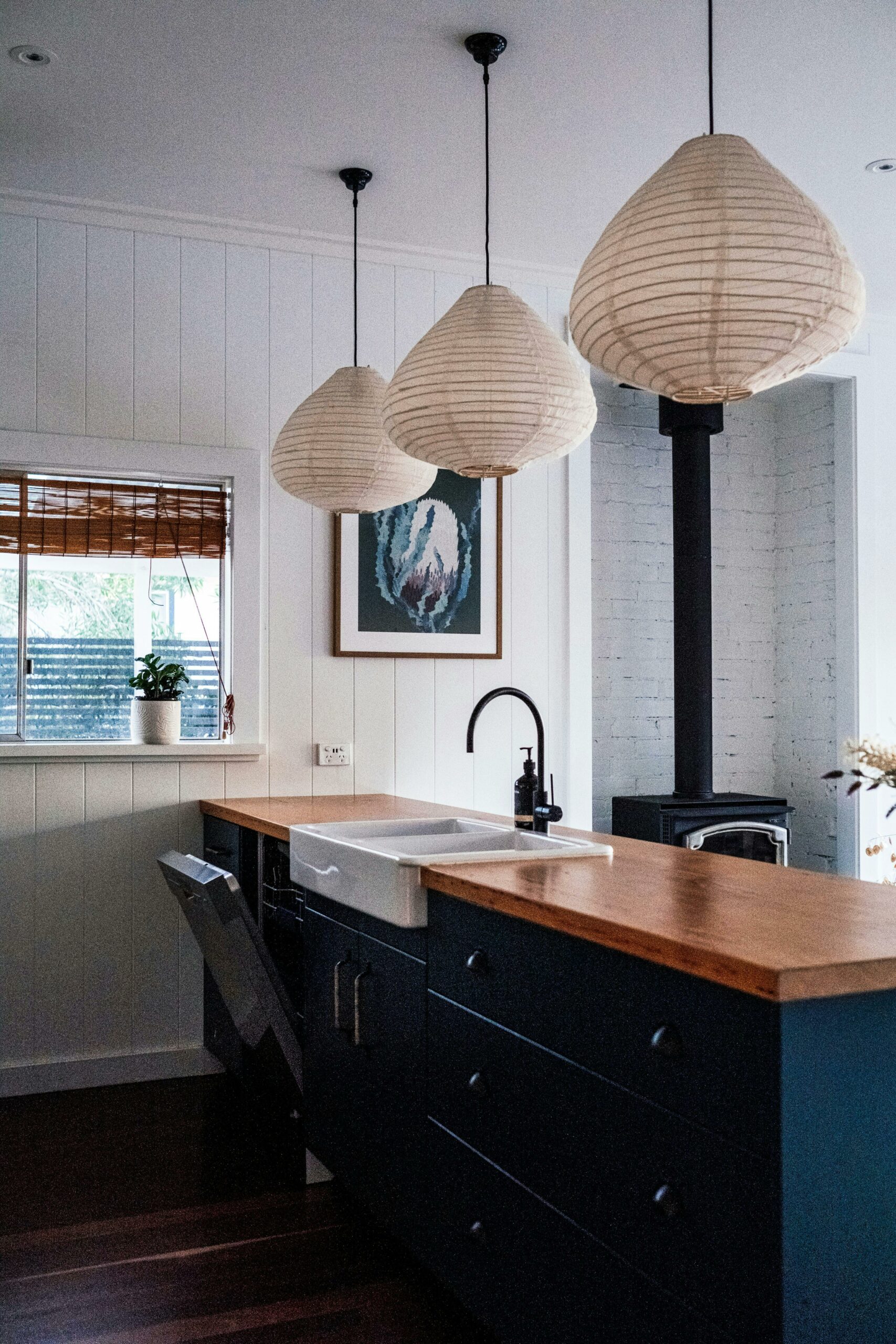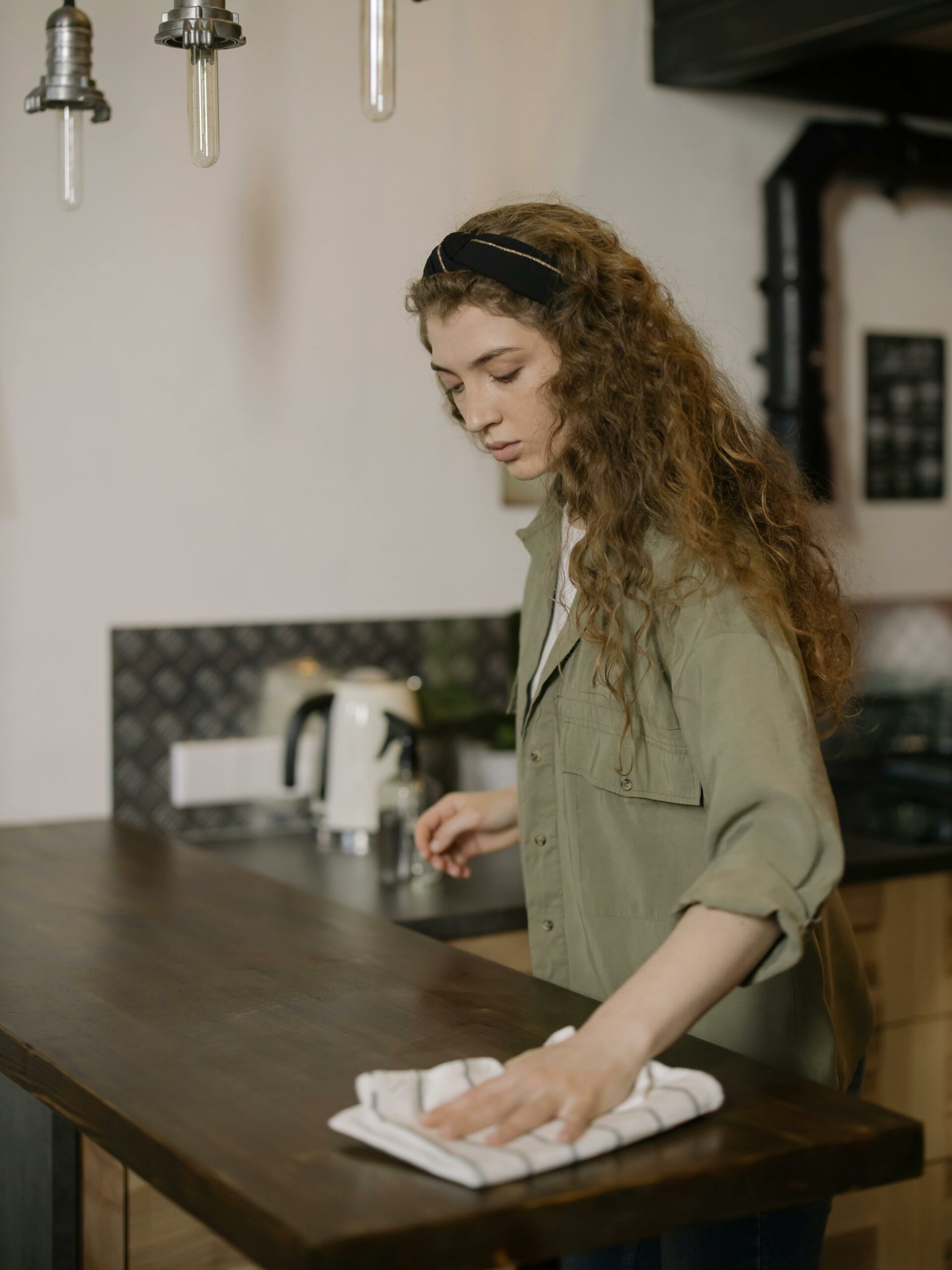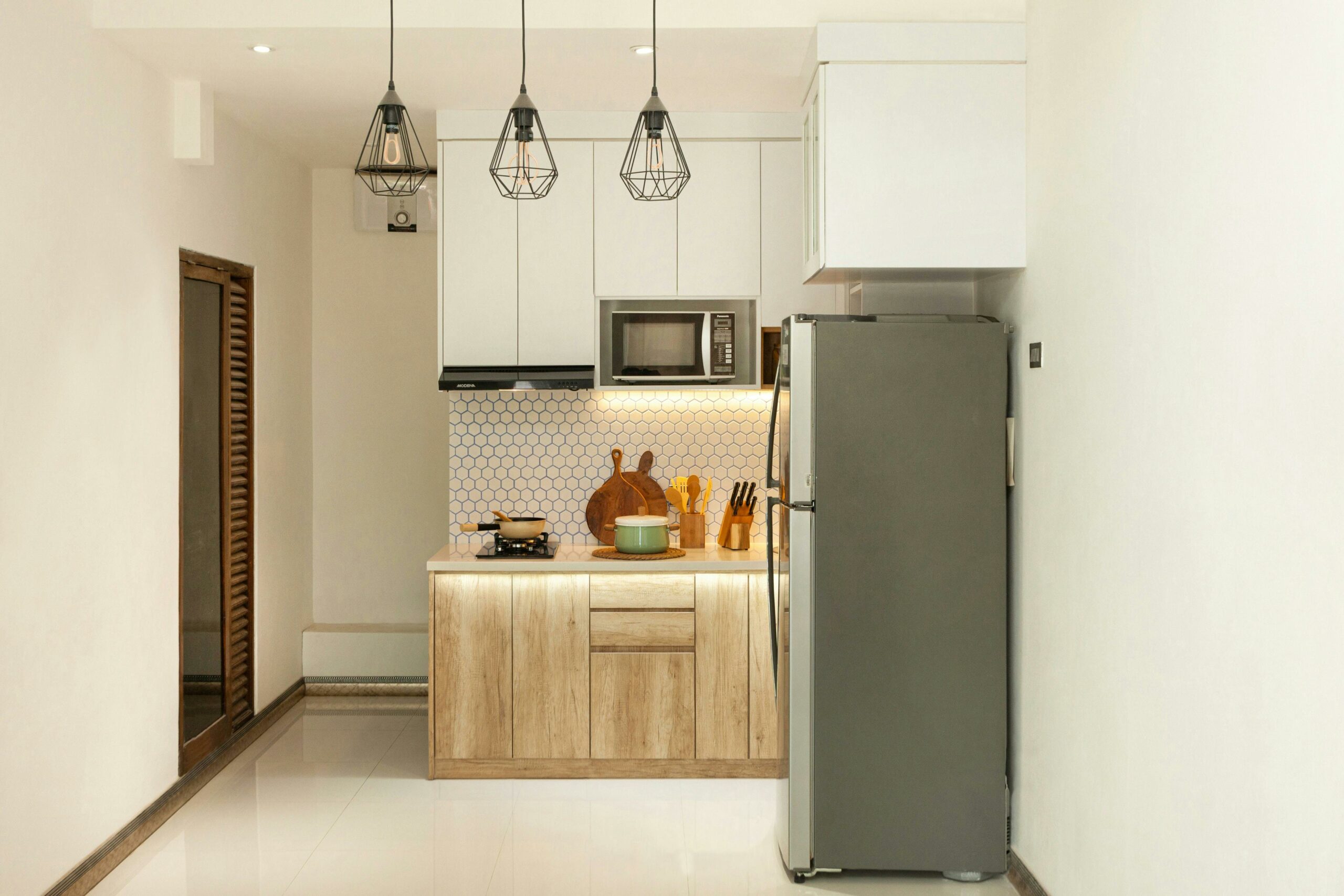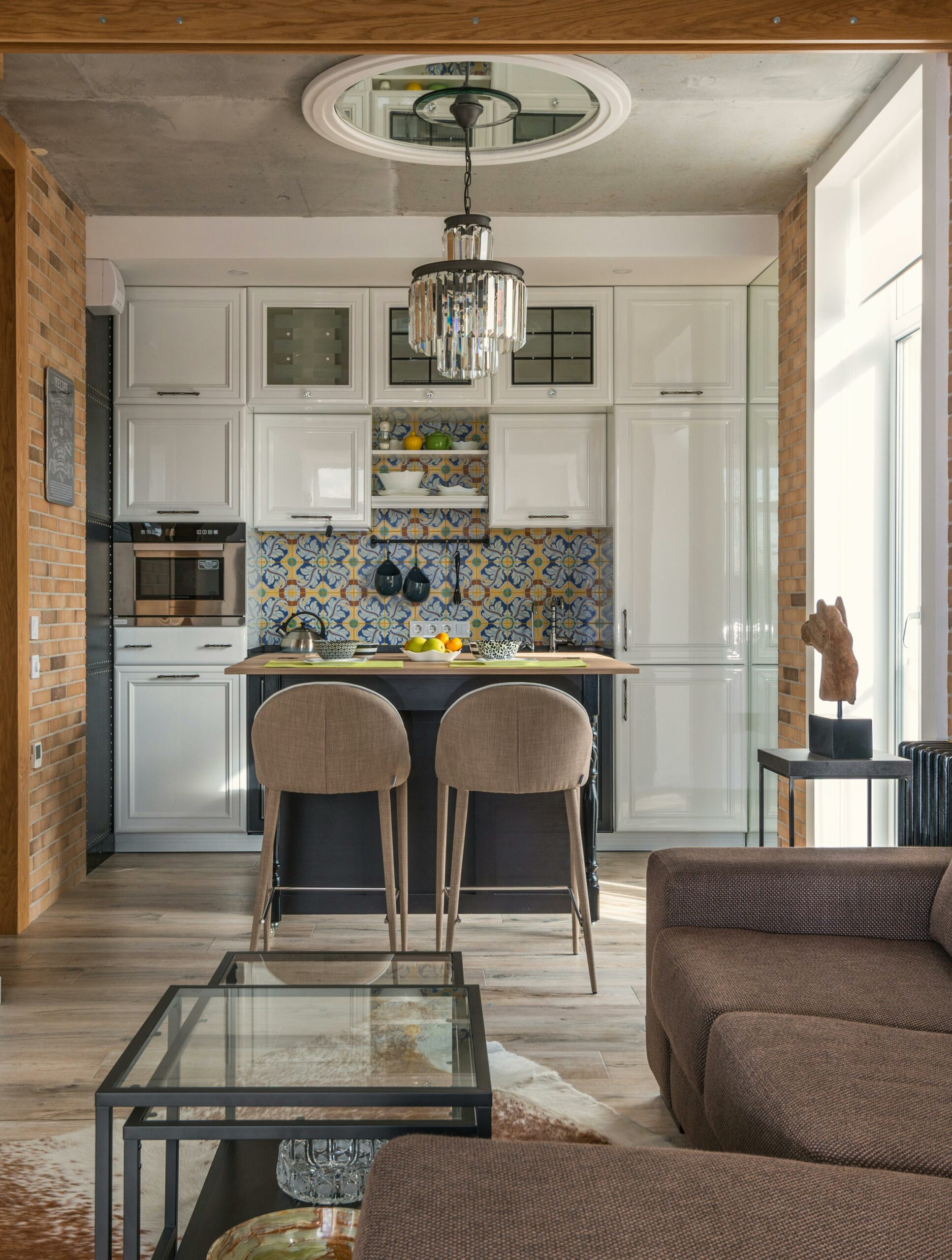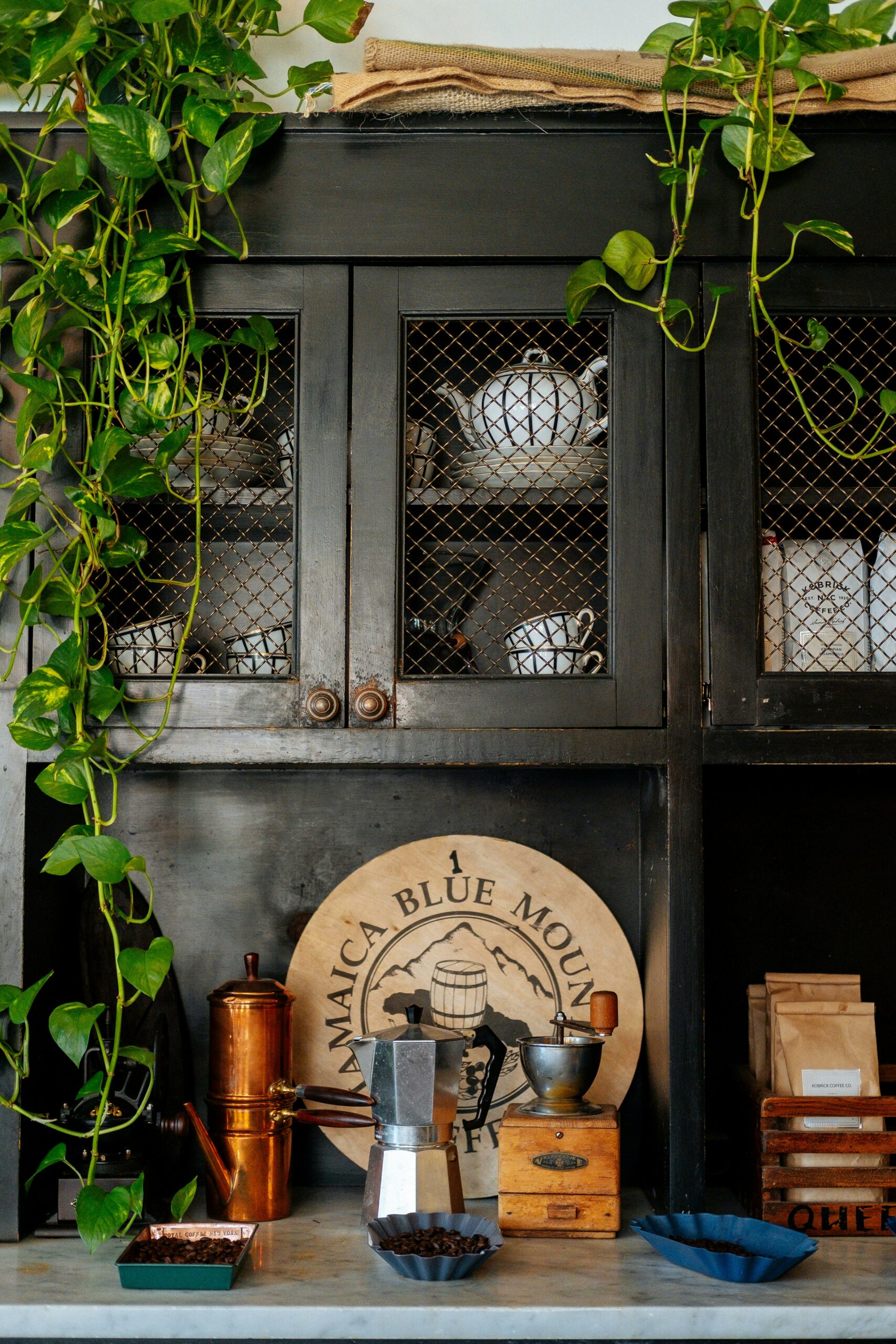Choosing the benchtop for your kitchen or bathroom can be quite a challenge.
Often it comes down to two materials; porcelain and granite each with its unique characteristics. In this guide, we will explore the distinctions between porcelain benchtops and granite benchtops focusing on factors such as durability, maintenance requirements, design flexibility and more.
So if you’re struggling to decide which material is best, for your renovation project continue reading to discover which option would suit you best.

Durability and Strength
When it comes to selecting a material for your tabletop, durability and strength are factors to consider.
All a benchtop should withstand regular use resist scratches and bear the weight of various kitchen equipment. In this section we will explore the durability of both granite and porcelain and highlight their characteristics.
- Porcelain Countertops; Renowned for its durability porcelain is a solid ceramic material that is non porous and resistant to heat, scratches and stains. Its compact structure ensures that it doesn’t easily chip or crack making it a lasting choice. While it offers an uniform appearance it is often compared to natural stone in terms of strength.
- Granite Countertops; On the hand granites strength makes it a popular choice as a natural stone. Composed of minerals, its crystalline and dense structure showcases its durability. Although highly resistant to heat and scratches proper sealing is necessary to prevent staining. Its unique aesthetic appeal stems from the variations in color and design.
- Comparison; Both granite and porcelain offer durability. Granite stands as a timeless option due to its strength while porcelain gains an advantage with its non porous composition for enhanced stain resistance. Ultimately your decision may rely on preferences such, as aesthetics and required maintenance levels.
Maintenance and Care
To ensure the lasting beauty and functionality of your benchtop it is essential to keep it clean and well-maintained.
It’s important to understand the maintenance needs of porcelain and granite so that you can make an informed decision. Lets explore the maintenance requirements, for these two materials.
- Porcelain Benchtops: Porcelain smooth surface makes cleaning easy. In cases a quick wipe with a damp cloth and mild detergent is all it takes to keep it looking fresh. You don’t have to worry about sealing, which helps reduce long term maintenance costs.. Its resistance, to chemicals and abrasions ensures that it maintains its shine for years to come.
- Granite Benchtops: When it comes to maintaining granite it requires a bit attention. To prevent stains and moisture absorption it’s important to apply sealant. You can maintain its shine by using gentle cleaners and avoiding acidic substances. Despite the need for care many homeowners find the additional effort worth it due, to the unique beauty it brings forth.
- Comparison: Porcelain offers a much simpler maintenance experience, making it a practical choice for busy households due to its stain resistance and low upkeep requirements. On the other hand, granite demands more maintenance and regular sealing, but the extra effort pays off with its unique and luxurious appearance. Your lifestyle and the amount of time you are willing to invest in maintenance can influence your decision.
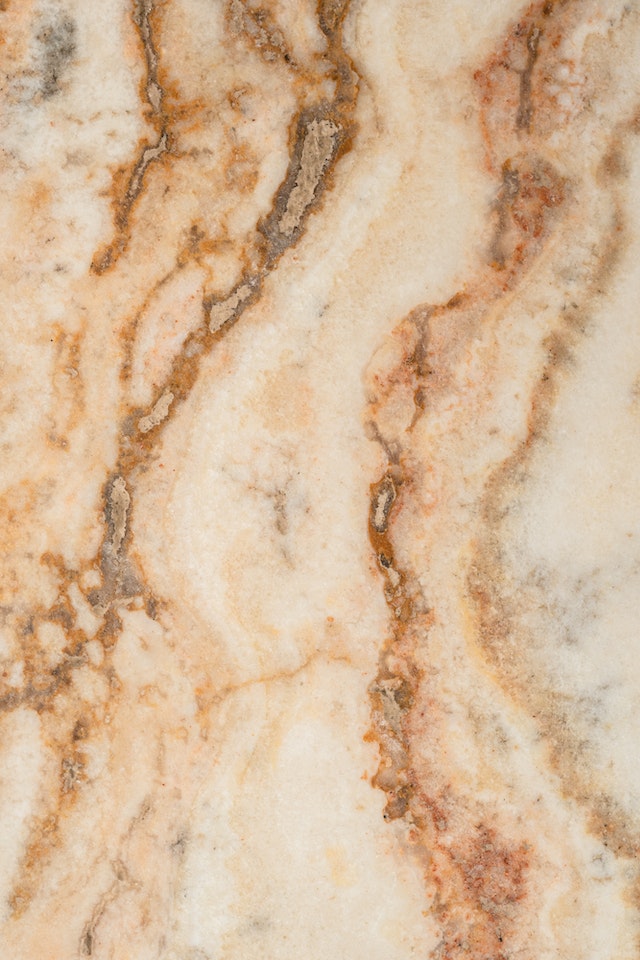
Customization and Design Flexibility
The beauty of your benchtop greatly influences your space’s entire mood.
If you have certain design goals, customization and design flexibility are important considerations. Let’s examine how versatile in terms of design porcelain and granite benchtops fair.
- Porcelain Benchtops: Numerous design alternatives are available when using porcelain. It may imitate the look of real stone, wood, or even concrete because it comes in a variety of colors, patterns, and finishes. Its versatility in design, which enables complex patterns and seamless integration with diverse interior designs, is facilitated by its ability to be sliced into thin slabs.
- Granite Benchtops: Granite’s distinctive patterns and color variations are what give it its inherent beauty. Each slab is unique and has a distinctive appearance. Granite’s inherent elegance and the availability of various treatments (polished, honed, etc.) offer many of chances to create a customized aesthetic, even though personalization may be limited in comparison to Porcelain.
- Comparison: Porcelain is a choice among people looking for a fitted appearance due to its adaptability in design. Its ability to imitate other materials and adapt to other styles offer countless design options. Granite provides a more genuine and opulent impression due to its natural beauty. Which of the two you prefer—natural charm or customized elegance—might be the deciding factor.
Conclusion
When deciding between porcelain and granite benchtops, it’s essential to carefully consider various factors such as durability, maintenance and design flexibility.
Ultimately, the choice between porcelain or granite benchtops comes down to personal preference, lifestyle and design goals.
By understanding the distinctive qualities of each material, you can make a decision that aligns with your space and personal style. Whether you prioritize the practicality of porcelain or the organic allure of granite is entirely up to you.
FAQs
Q: Are porcelain benchtops better than stone?
Porcelain countertops are a great choice due to their exceptional durability and resistance to stains. While natural stone, such as granite, has its own unique beauty and appeal, determining which is “better” can be subjective. The decision between stone and porcelain ultimately depends on personal preferences, ease of maintenance and design goals.
Q: What type of benchtop is best?
Porcelain makes an excellent choice for kitchen countertops. Its non porous structure makes it resistant to stains, scratches and heat. Additionally, its versatility and low maintenance requirements make it a practical and attractive option for many kitchens.
Q: Is porcelain good for kitchen benchtops?
Porcelain makes an excellent choice for kitchen countertops. Its non porous structure ensures that it remains resistant to stains, scratches and heat. Moreover, its versatility and low maintenance requirements make it a practical and attractive option for numerous kitchens.
Q: What stone is best for benchtops?
Porcelain is an excellent choice for kitchen countertops. It has the advantage of being non porous, which means it can withstand heat, stains and scratches. Many people find it to be a practical and attractive option for their kitchens due to its customizable design and easy upkeep.


